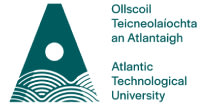Cancer related fatigue (CRF) is a well-recognised symptom of malignant breast disease and may affect up to 70% of those undergoing therapy or deemed to be in remission. The condition is frequently subject to unpredictable recurrence that can result in unavoidable and unforeseen detriment to quality of life. Moreover, management of the condition can place significant financial burden on health and social care facilities.
CRF is distinct from normal tiredness which may be resolved by periods of sleep or rest. Previous studies have suggested that modulations in the levels of certain plasma or salivary markers may be involved in the promotion of symptoms. However, results from these studies are often conflicting and no individual marker or group of markers has been attributed to the cause of fatigue. This has major implications for the development of predictive models of recurrence and in the design of potential physiological and pharmacological interventions.
One reason for these conflicts lies in the fact that previous studies have failed to identify an accurate baseline for fatigue and having relied on subjective patient perceptions of inactivity and exhaustion.
Wearable technology and mobile health in modern healthcare is continually evolving. Wearables are becoming ever important in the role of patient diagnosis and recovery. Sensors are now used to monitor patient health, rapidly diagnose disease, and to help predict patient outcomes.
Artificial Intelligence (AI) is a powerful tool used in pattern recognition. It has been successfully demonstrated in visual object identification and speech recognition. AI could provide an intriguing opportunity to automatically detect the symptoms of CRF using wearable technology and biomarker profiles. This study will research an appropriate supervised AI algorithm trained using analysis of human movement combined with relevant BCF biomarker data to automatically detect changes in CRF fatigue levels. Furthermore, the study will examine whether wearable technology can be used as an alternative method to detect CRF fatigue.
The main aim of this study is therefore to determine an accurate fatigue baseline for individuals diagnosed with breast cancer to examine relationships between potential fatigue markers, measurable daily activity, and individual perceptions of fatigue. This baseline will be optimised using AI techniques.
Candidate Qualifications/Requirements:
Candidates should possess a minimum of a 2.1 in Biomedicine or a closely related discipline and have an understanding of the relationship between inflammatory cytokines and fatigue in chronic disease.
Desirable attributes include experience in biological sample handling, cell and tissue culture, and bioassay development. Experience of modern bioanalytical methodologies would similarly be advantageous. Good organisational skills and the ability to deliver set endpoints with precision and accuracy are essential.
The successful applicant will also be able to demonstrate excellent interpersonal communication and presentation skills (both written and oral), competency in statistical analysis, and show a genuine interest in promoting digital solutions to disease management and patient well-being.
It is also a requirement that any applicant whose first language is other than English must have a certified English language proficiency of at least IELTS 7.0 or equivalent.
Application Process
To apply for this PhD project, please complete the following application form and return to the [Email Address Removed] along with all relevant documentation by 5:00pm, Monday 19th July.

 Continue with Facebook
Continue with Facebook



